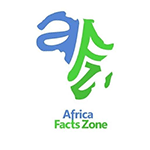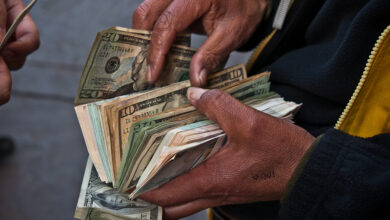Ranking: 10 African Nations with the Most Weakest Currencies in 2024

The economic landscape of Africa is marked by diverse challenges, with currency weakness being a significant concern for many nations.
In 2024, several African countries grapple with the consequences of having weak currencies, affecting various aspects of their economies and societies.
Understanding the implications of currency weakness is crucial for addressing underlying issues and fostering sustainable growth.
The Ramifications of Weak Currencies
The repercussions of a weak currency extend far beyond financial markets, permeating every facet of society. From hindered foreign investment to complications in international trade, the consequences are profound and multifaceted.
Addressing these challenges requires a concerted effort involving governments, industries, and international partners.
Impact on Foreign Investment and Economic Growth
One of the primary drawbacks of a weak currency is its deterrent effect on foreign investment. Investors are hesitant to commit funds to countries with unstable currencies, fearing rapid depreciation and loss of value.
Consequently, the lack of investment stifles economic growth and hampers job creation, perpetuating cycles of poverty and underdevelopment.
ALSO READ: Ranking: Top 10 African Nations with Strongest Currencies in 2024
Challenges in International Trade:
Weak currencies pose significant challenges for African exporters, making their goods less competitive in the global market.
As the cost of exports increases for foreign buyers, export earnings decline, leading to trade deficits and further pressure on the currency.
This dynamic exacerbates economic vulnerabilities and impedes efforts to achieve sustainable development.
Social and Political Implications:
Beyond economic considerations, weak currencies also have profound social and political implications. High inflation and reduced purchasing power contribute to poverty and inequality, fueling social unrest and political discontent.
Addressing these underlying issues is essential for promoting social cohesion and stability within affected nations.
Top 10 African Countries with Weakest Currencies in 2024:
Below is a list of the ten African countries grappling with the weakest currencies in 2024, based on their current exchange rates:
- São Tomé and Príncipe – Dobra (STD) – 22,281.8/$
- Sierra Leone – Leone (SLL) – 19,678.65/$
- Guinea – Guinean Franc (GNF) – 8,583.4/$
- Madagascar – Malagasy Ariary (MGA) – 4,528.28/$
- Uganda – Ugandan Shilling (UGX) – 3,849.94/$
- Burundi – Burundian Franc (BIF) – 2,849.21/$
- Democratic Republic of Congo – Congolese Franc (CDF) – 2,752.27/$
- Tanzania – Tanzanian Shilling (TZS) – 2,540.00/$
- Malawi – Malawian Kwacha (MWK) – 1,680.27/$
- Nigeria – Naira (NGN) – 1,700.50/$
Conclusion:
The prevalence of weak currencies in Africa underscores the urgent need for comprehensive economic reforms and strategic interventions.
By addressing the root causes of currency weakness and implementing sound monetary policies, African nations can mitigate the adverse effects and pave the way for sustainable development.
References:





